CONCLUSION
AND HIGHLIGHTS
0

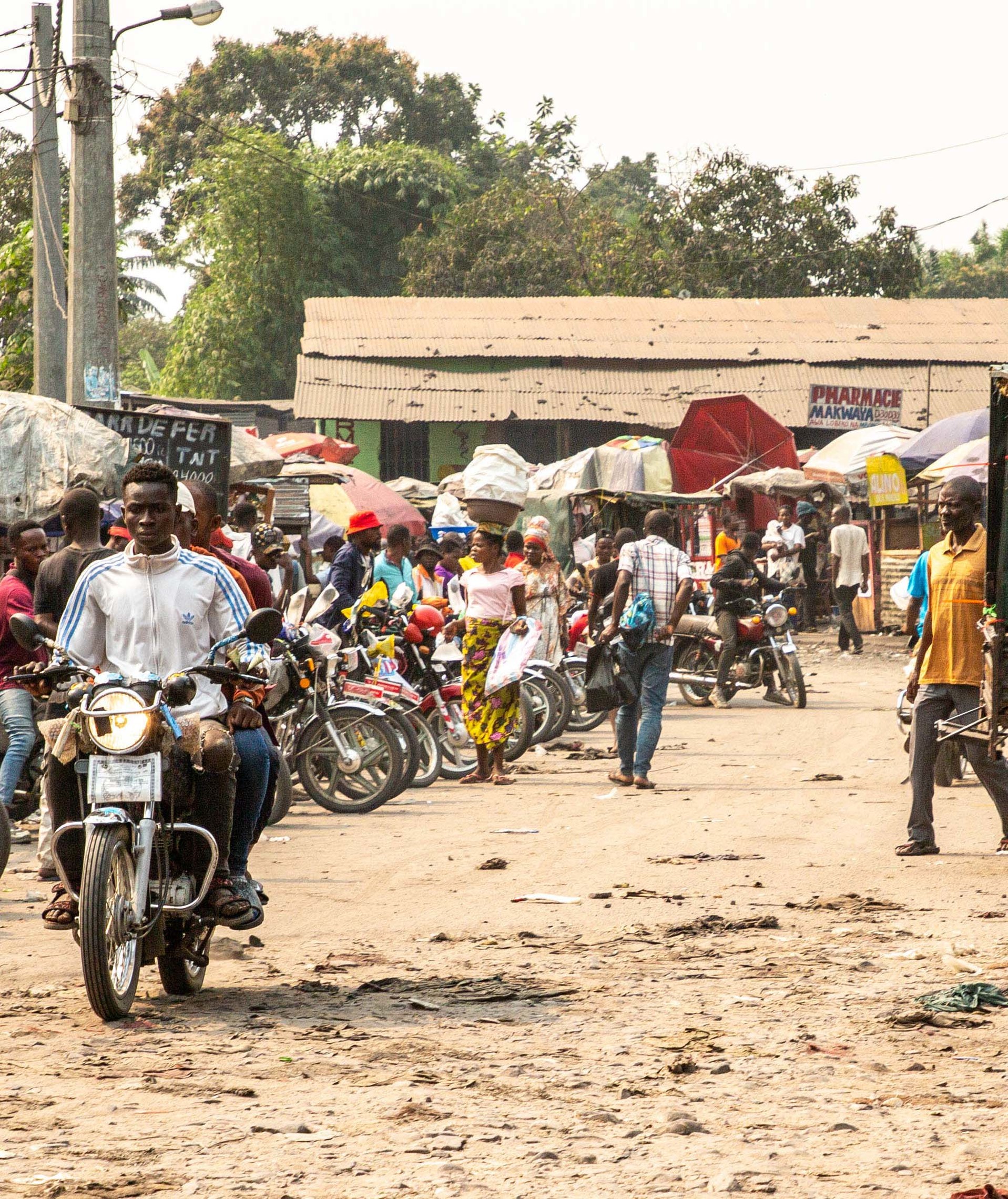



CONCLUSION
AND HIGHLIGHTS
The studies funded by CICLIA provided the Congolese authorities and AFD with all the technical, operational, organisational and urban elements required for the definition of an investment project. They enabled AFD to fund the pilot project TO PETOLA for an amount of 15 million in grants.
The course of the studies also showed how important it is to identify preliminary constraints beforehand, so that the land development proposals are both technically and financially achievable (land availability, costs for raising roads and facilities, etc.).
Improving the management of household waste and the control of flood risks, this project, currently underway, aims to upgrade the living conditions (especially sanitary) of the people living along the river.
It is a first step in the implementation of the authorities' urban policy promoting better disaster risk management, better urban governance and shared management of urban utilities.
The studies funded by CICLIA provided the Congolese authorities and AFD with all the technical, operational, organisational and urban elements required for the definition of an investment project. They enabled AFD to fund the pilot project TO PETOLA for an amount of 15 million in grants.
The course of the studies also showed how important it is to identify preliminary constraints beforehand, so that the land development proposals are both technically and financially achievable (land availability, costs for raising roads and facilities, etc.).
Improving the management of household waste and the control of flood risks, this project, currently underway, aims to upgrade the living conditions (especially sanitary) of the people living along the river.
It is a first step in the implementation of the authorities' urban policy promoting better disaster risk management, better urban governance and shared management of urban utilities.
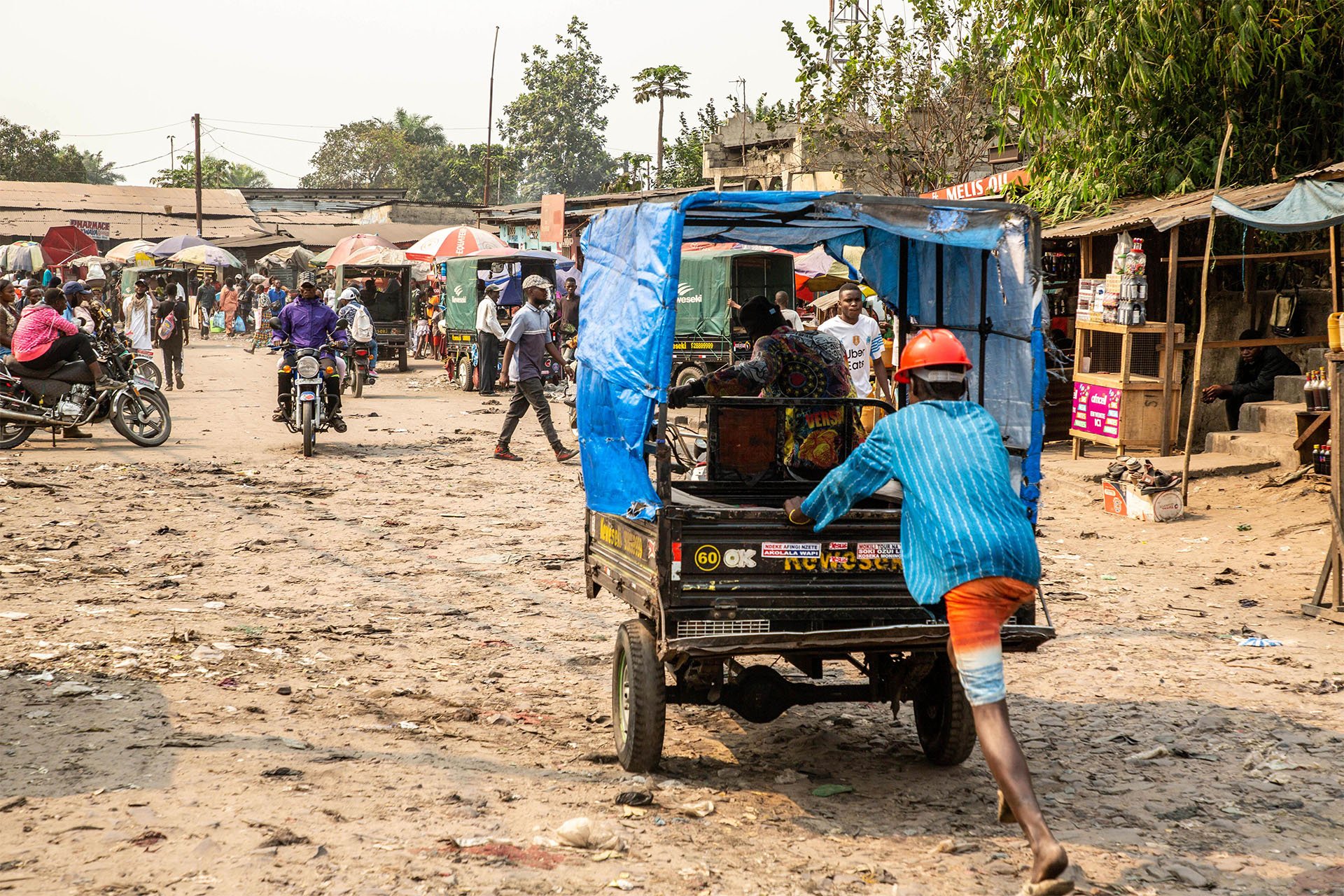
The study initiated a dialogue between the inhabitants of the precarious neighbourhoods and the Congolese institutions, through the preparation of a public utility delegation for pre-collection to local communities. This community management aims to strengthen local governance and involve the latter in flood risk management.
The study confirmed the need to adapt urban infrastructures (dykes, roads, drains, waste collection points, etc.), in order to prevent an increase in the risks for the population, linked to:
For each of these effects, recommendations to integrate climate change into the action plan have been formulated.
For each of these effects, recommendations to integrate climate change into the action plan have been formulated.
The study initiated a dialogue between the inhabitants of the precarious neighbourhoods and the Congolese institutions, through the preparation of a public utility delegation for pre-collection to local communities. This community management aims to strengthen local governance and involve the latter in flood risk management.
The study confirmed the need to adapt urban infrastructures (dykes, roads, drains, waste collection points, etc.), in order to prevent an increase in the risks for the population, linked to:
direct impacts during a flood, including loss of life and habitat degradation in the affected areas,
sanitary conditions worsened by the event,
effects on infrastructures and neighbourhood organisation: prolonged social disorganisation and economic paralysis.
direct impacts during a flood, including loss of life and habitat degradation in the affected areas,
sanitary conditions worsened by the event,
effects on infrastructures and neighbourhood organisation: prolonged social disorganisation and economic paralysis.
1.
2.
3.
Roads and waste issues were addressed parallelly and in a complementary approach, with concrete recommendations for adaptation:
Roads and waste issues were addressed parallelly and in a complementary approach, with concrete recommendations for adaptation:


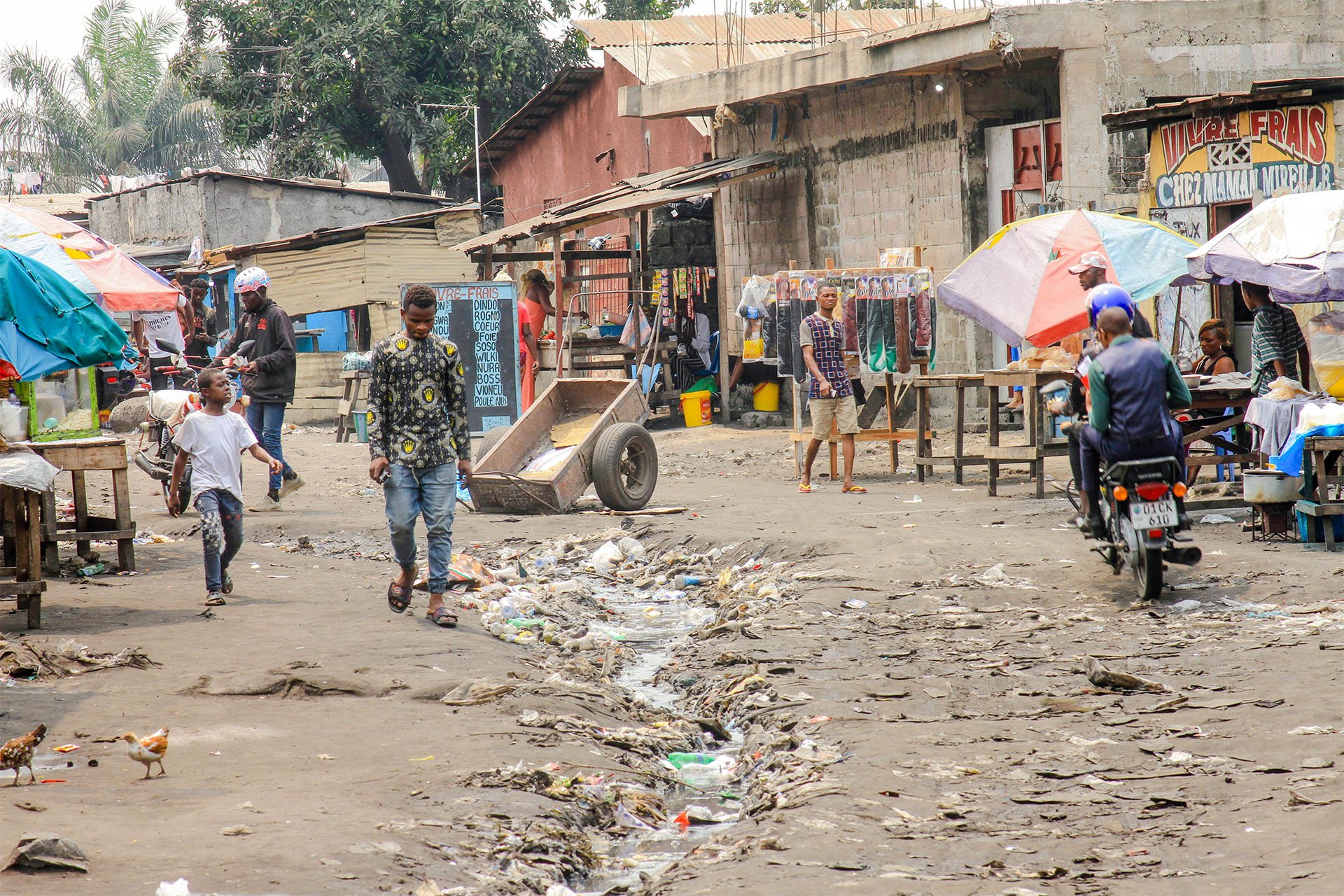


Carry out preliminary studies for a project designed to improve living conditions in precarious neighbourhoods through the implementation of a pre-collection service and flood management.
Define quick impact actions, structuring actions and a capacity building program for the parties involved in the territorial management (authorities, civil society organisations, inhabitants).
Carry out preliminary studies for a project designed to improve living conditions in precarious neighbourhoods through the implementation of a pre-collection service and flood management.
Define quick impact actions, structuring actions and a capacity building program for the parties involved in the territorial management (authorities, civil society organisations, inhabitants).
1. General objectives of the support
Assessed the region's potential vulnerability to the effects of climate change, more specifically to measure the increase in rainfall patterns,
Realised impacts analysis on the area concerned by the project, including the N'djili River watershed, and identified further adaptation measures to be integrated into the project,
Presented a hazard map at neighbourhood level, involving communities, men and women, in order to raise flood risks awareness among the inhabitants and to encourage the adoption of a preventive approach.
Assessed the region's potential vulnerability to the effects of climate change, more specifically to measure the increase in rainfall patterns,
Realised impacts analysis on the area concerned by the project, including the N'djili River watershed, and identified further adaptation measures to be integrated into the project,
Presented a hazard map at neighbourhood level, involving communities, men and women, in order to raise flood risks awareness among the inhabitants and to encourage the adoption of a preventive approach.



3. Achievements in terms of adaptation
3. Achievements
in terms of adaptation
Diagnosed the neighbourhoods identified by the Congolese authorities, defined practices and needs of the populations in order to target priority intervention areas,
Identified and defined costs for quick actions (small "labor-intensive" works, community days, etc.) and structural actions to be carried out in the framework of the project (roads, drainage, waste transfer centers, etc.),
Carried out a participatory mapping of the actors in the neighbourhoods involved, and defined a contractual relationship between the community and institutional levels,
Carried out a mapping of institutions and an organisational diagnosis in order to establish a capacity building program for the actors.
Diagnosed the neighbourhoods identified by the Congolese authorities, defined practices and needs of the populations in order to target priority intervention areas,
Identified and defined costs for quick actions (small "labor-intensive" works, community days, etc.) and structural actions to be carried out in the framework of the project (roads, drainage, waste transfer centers, etc.),
Carried out a participatory mapping of the actors in the neighbourhoods involved, and defined a contractual relationship between the community and institutional levels,
Carried out a mapping of institutions and an organisational diagnosis in order to establish a capacity building program for the actors.




2. Urban and institutional achievements


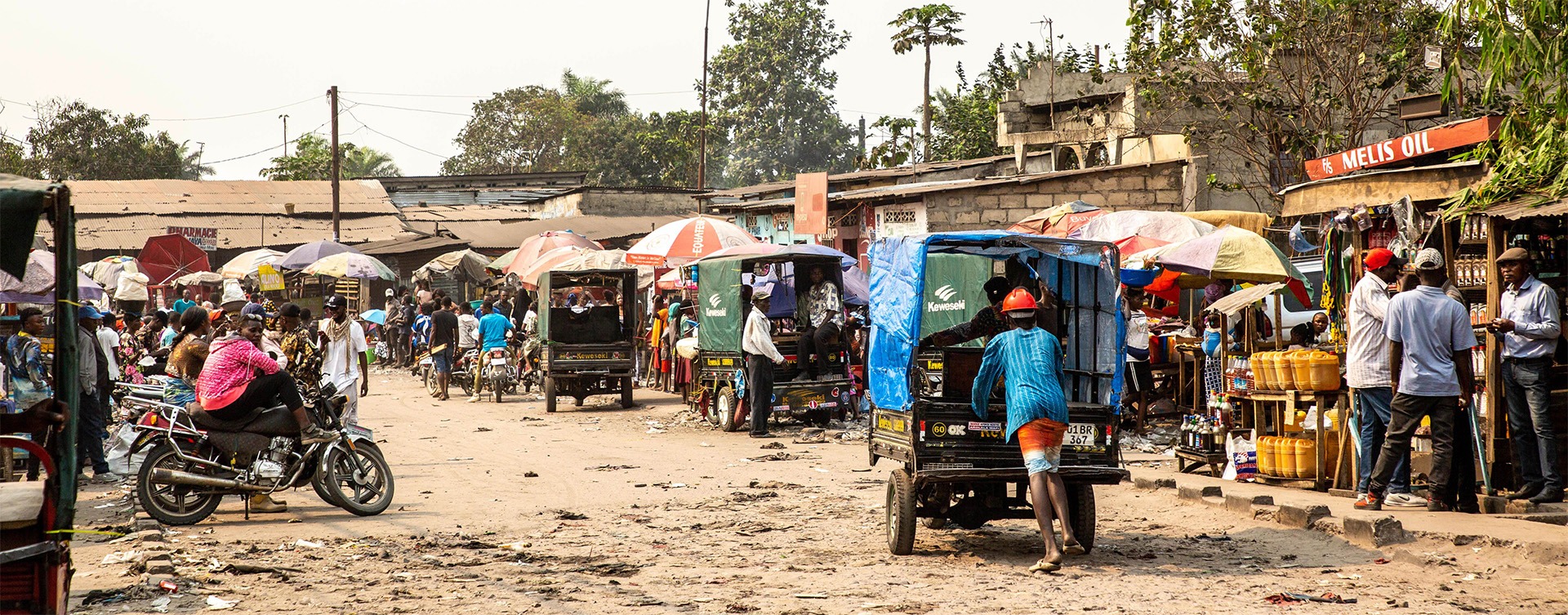
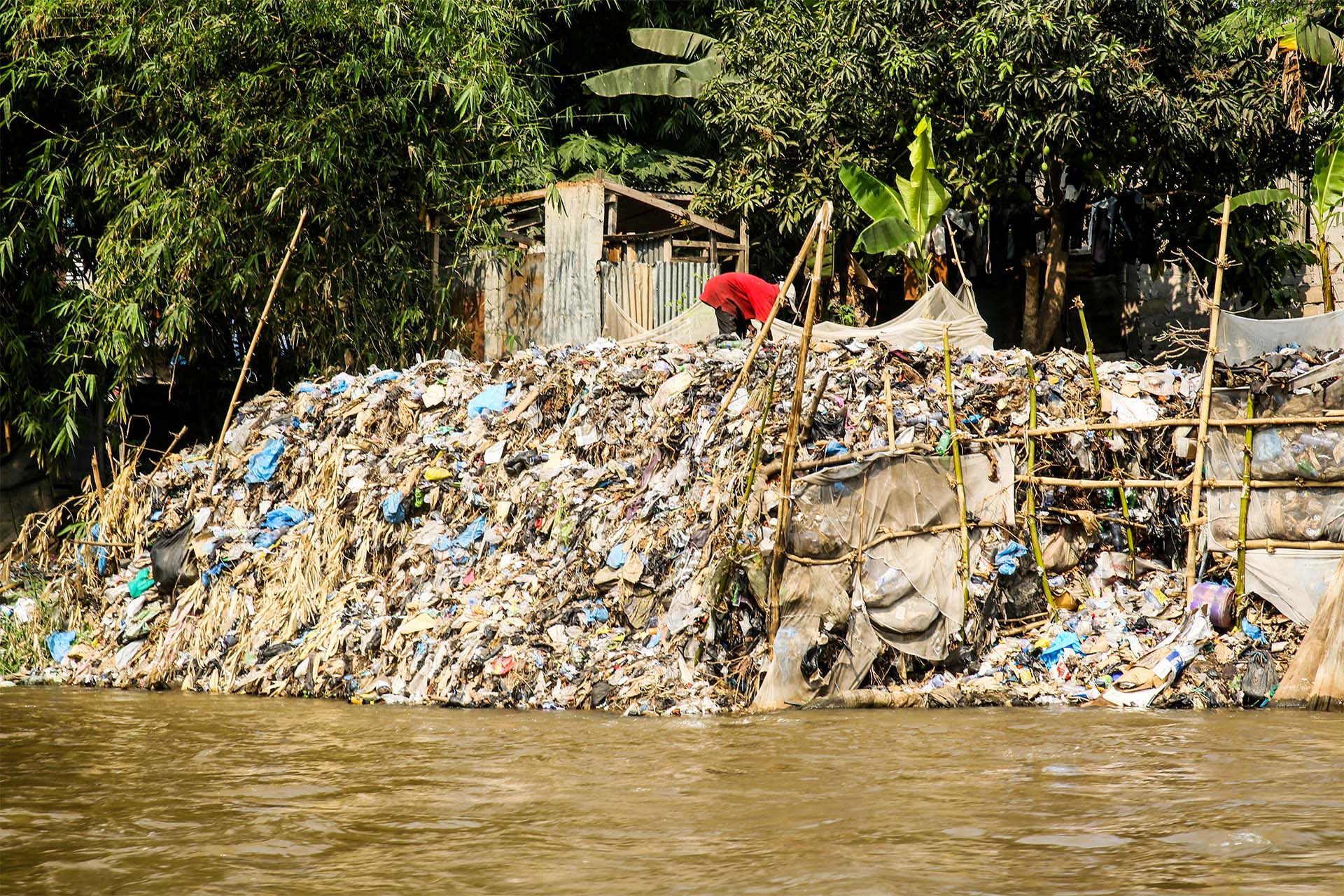
Kinshasa is experiencing torrential rains and increased heat spikes due to climate change. The consequences of the unprecedented floods of 2015 along the N'djili river have particularly affected the authorities and the population (several dozen deaths, 20,000 households without shelter, 2/3 of the city without drinking water).
In order to strengthen urban resilience, the local authorities have defined strategic reference documents to plan the development of the agglomeration, with flood control and waste management as top priorities.
The Democratic Republic of Congo (DRC) and the city of Kinshasa wished to implement a project in the N'djili River area. To achieve this, they asked AFD via CICLIA to prepare the project.
Kinshasa is experiencing torrential rains and increased heat spikes due to climate change. The consequences of the unprecedented floods of 2015 along the N'djili river have particularly affected the authorities and the population (several dozen deaths, 20,000 households without shelter, 2/3 of the city without drinking water).
In order to strengthen urban resilience, the local authorities have defined strategic reference documents to plan the development of the agglomeration, with flood control and waste management as top priorities.
The Democratic Republic of Congo (DRC) and the city of Kinshasa wished to implement a project in the N'djili River area. To achieve this, they asked AFD via CICLIA to prepare the project.
A megalopolis of about 15 million inhabitants, Kinshasa faces two major urban challenges: a rapid urban growth associated with a lack of land regulation and urban planning, leading to the development of many very dense, precarious and under-equipped urban districts.
Furthermore, the city is located on unstable sandy soils and is subject to erosion and flooding hazards, particularly in the N'djili river basin, where several informal settlements are concentrated. The absence of waste collection system, contributing to the pollution of water and soil, aggravates these phenomenons.
A megalopolis of about 15 million inhabitants, Kinshasa faces two major urban challenges: a rapid urban growth associated with a lack of land regulation and urban planning, leading to the development of many very dense, precarious and under-equipped urban districts.
Furthermore, the city is located on unstable sandy soils and is subject to erosion and flooding hazards, particularly in the N'djili river basin, where several informal settlements are concentrated.
The absence of waste collection system, contributing to the pollution of water and soil, aggravates these phenomenons.

CONTEXT

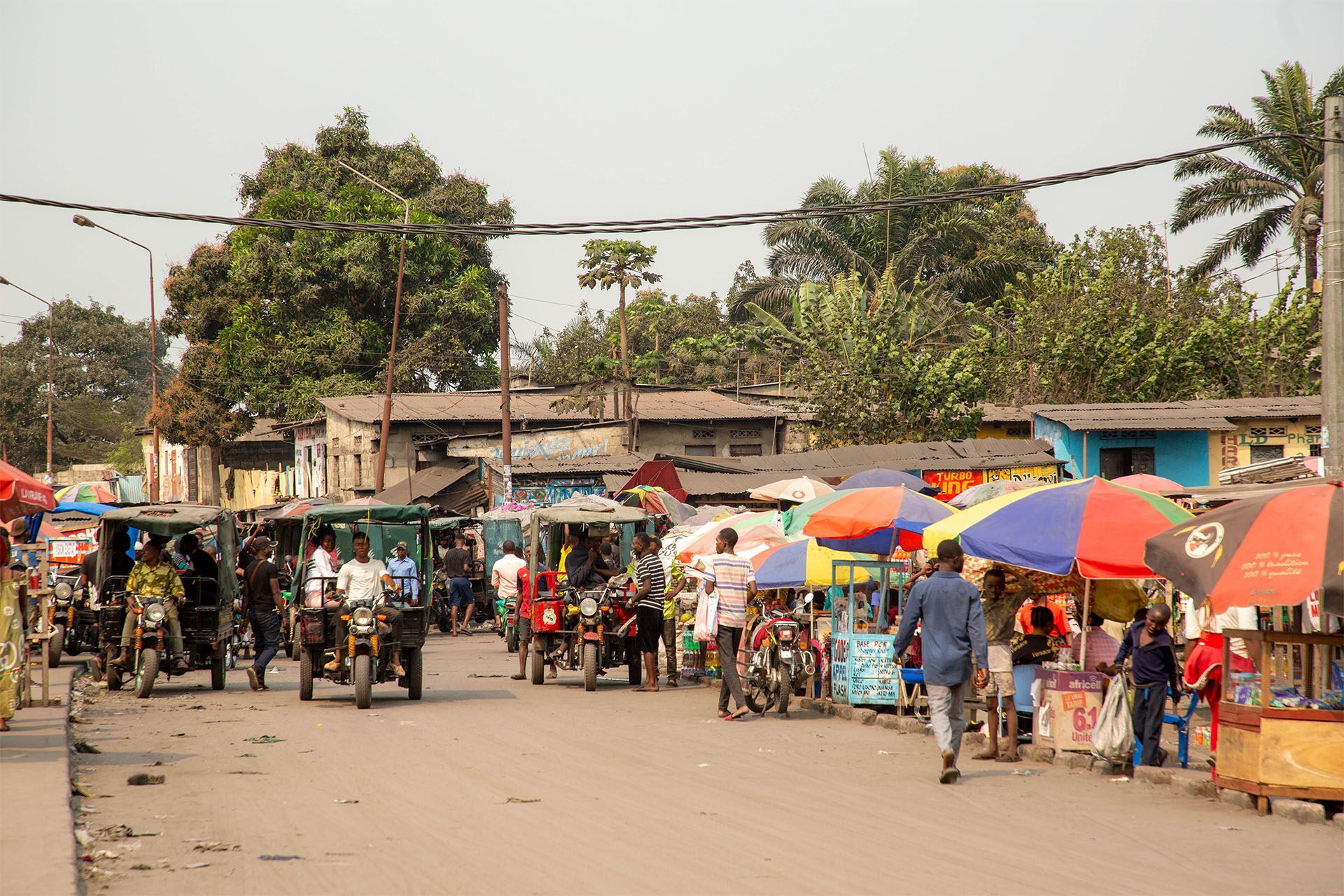


€15M funding granted by AFD for a project aiming at structuring solid waste pre-collection services and reducing flood risks in Kinshasa
Follow-up to the technical assistance
€293 000
CICLIA funds mobilised
Climate change adaptation
Climate approach
Implementation period
2018-2019 (18 months)
Nature
of the technical assistance
Pre-feasibility and climate change vulnerability studies
Urban Development Unit (CDUK) of the city of Kinshasa, Democratic Republic of Congo
Project owner
REDUCING EXPOSURE
TO FLOOD RISK
AND IMPROVING
THE SANITY CONDITIONS OF THE INHABITANTS
OF THREE PRECARIOUS NEIGHBOURHOODS ALONG THE N'DJILI RIVER
REDUCING EXPOSURE TO FLOOD RISK
AND IMPROVING
THE SANITARY CONDITIONS OF
THE INHABITANTS OF THREE PRECARIOUS NEIGHBOURHOODS ALONG THE N’DJILI
RIVER
KINSHASA
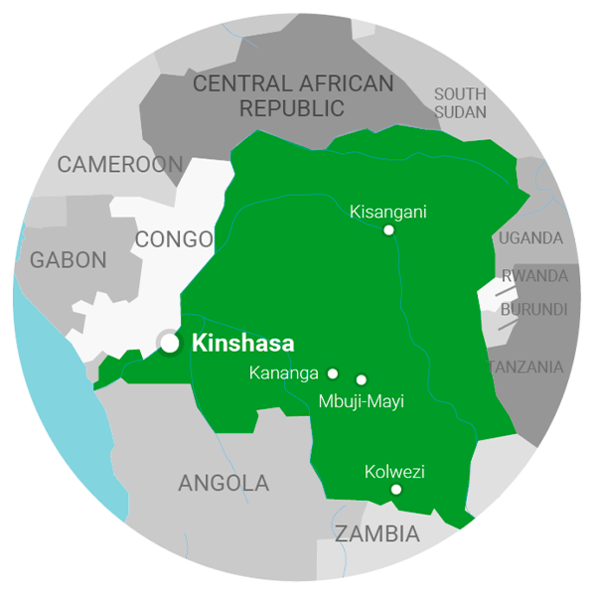
Funding and expertise for a sustainable development of African cities
